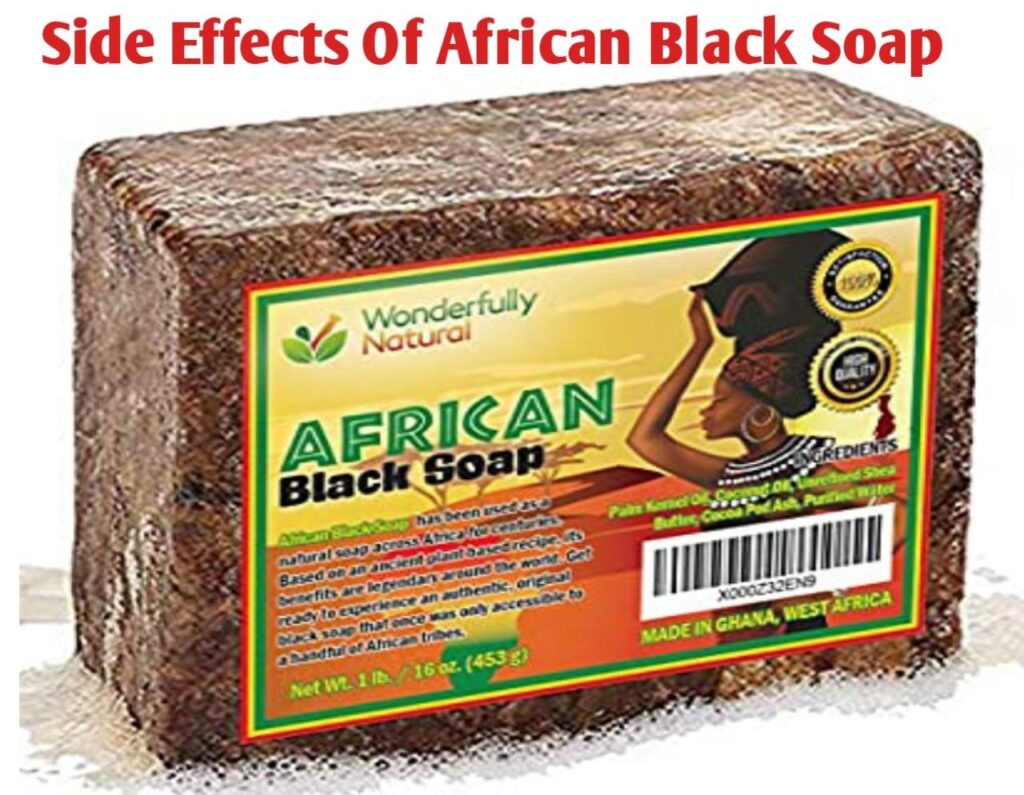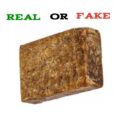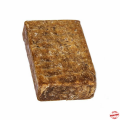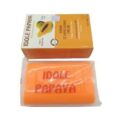African black soap (also called African soap or black soap) is the latest skincare product to reach “holy grail” status, and for good reason. African black soap (ose dudu) originated with the Yoruba people in Nigeria and the Yoruba communities in Benin and Togo. The Yoruba words ose (soap) and dudu (black) literally translate to black soap. It is also called anago samina in Ghana. Samina means soap in the Twi dialect of the Akan language.
African black soap is touted as a solution for breakouts, hyperpigmentation, stretch marks, and everything in between, black soap is the ultimate beauty buy for those on a budget. And unlike the synthetic soaps you find at the drugstore, authentic black soap is handmade from plant-based ingredients in Africa. If possible, buy fair-trade black soap. Each fair-trade purchase supports sustainable production, and, in some cases, it directly benefits communities in need.
Real traditional African black soap is handmade. Once the ingredients are combined, the soap is heated and left to cure for several days before use. If you want to reap the most benefits, it’s important to find the real thing. Purchasing authentic black soap also helps ensure that proceeds from the products go back to the communities that actually create the soap. These are often labeled as “fair trade” products. Depending on the region it’s made in, African black soap can also be found under the guise of other names, such as Anago or Yoruba soaps. Due to the soap’s popularity, there is an increasing number of knockoff products. You can tell the soap is a dud if it has synthetic ingredients or additives that aren’t in raw black soap (basically anything not plant-based!). Nearly all African black soaps are raw or are made out of all-natural formulas. Fake African black soaps will be clouded with red-flag chemicals like parabens, sulfates, artificial fragrances, and preservatives. Nevertheless, According to board-certified dermatologist, Peterson Pierre, M.D., of the Pierre Skin Care Institute, there are also genuine African black soap-infused skincare products.
If you’re new to raw black soap, consider using it once every couple of days to start. You can gradually increase your use as your skin gets used to the soap. It’s possible to be allergic to any soap. If your skin becomes irritated or you develop a rash, discontinue use. Natural black soap is also rough, so it can irritate or even break your skin if you’re not careful. Stinging and burning are also possible. If you’re using a raw block of soap, use gentle, circular motions as you glide it along your skin. The best way to prevent skin breakage is to smooth out the soap and combine it with water or use it with a washcloth.
Side Effects of African black Soaps
Although African black soap is packed with essential nutrients designed to enhance your skin’s natural complexion and help you glow from the inside out, it could also come with some unwanted side effects:
Damage to the gastrointestinal system
African traditional black soap is widely used among various local communities in northern Nigeria as a medicinal herb. Some people have reported experiencing gastrointestinal side effects by the use of African black soap. Experts believe that this is due to the cocoa present in African black soap. People have complained of experiencing constipation and stomach upset. Breastfeeding women should avoid using this soap because it may cause harm to the baby and cause colic. A colic baby is quite healthy but he keeps on crying for no apparent reason. Experts believe that colic is associated with gastrointestinal problems and studies have shown that the Sabulun salo (African traditional black soap) is toxic to the albino rats exposed.
Allergic reaction
Contact dermatitis is a red, itchy rash caused by direct contact with a substance or an allergic reaction to it. The rash isn’t contagious or life-threatening, but it can be very uncomfortable. Many substances can cause such reactions, including African traditional black soap and plants. The chance of getting an allergic reaction by using African black is a bit unlikely but this can’t be ruled out. The cocoa and plantain present in African black soap make people a bit allergic to them. For example, People allergic to melon should avoid using African black soap. Some signs of the allergy caused by African black soap are itchiness, rash, difficulty in breathing, and tightness in the throat or chest.
Stimulation
You might face the issue of stimulation or excessive energy by the use of African black soap. This is again due to the presence of cocoa in African black soap. The reason is that caffeine is present in cocoa which makes a person alert. The caffeine is present in a small quantity but people who are sensitive to caffeine should be wary about using African black soap. Some major effects include problems in concentration levels, irritability, and nervousness. Too much caffeine can also cause extra heartbeats and hand tremors. READ: How to Use Moroccan Black Soap: Benefits and Side Effects





